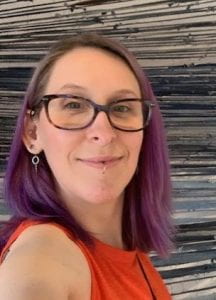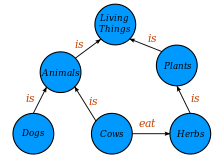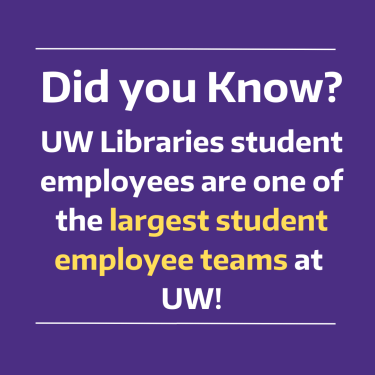March 12, 2024
The Secret Life of UW Libraries Catalogers and Metadata Specialists Spotlight
About the Student Spotlight Series
You may be surprised to hear that before you can access a library resource when you need it, a lot of work must be done to get that resource into the UW Libraries catalog. A whole department of librarians, staff, and students are quietly working away behind the scenes to get new resources into the catalog and to find innovative ways to enhance the Libraries’ metadata. This series of blog posts will highlight our brilliant student employees and the work they do to make your tasks of searching, identifying, selecting, and obtaining library resources easier and more effective.

Valerie Rollins
Student Spotlight #3: Valerie Rollins
Valerie Rollins came to the University of Washington Libraries as an MLIS candidate with years of library experience already behind her. During her study at the UW iSchool, Valerie worked at the Libraries as an Interlibrary Loan and Document Delivery Student Assistant in Circulation, completed her Capstone project with Cataloging & Metadata Services (CAMS), and, through Directed Fieldwork, Valerie learned cataloging with Crystal Yragui, UW Libraries Science and Book Arts Cataloger.
Valerie’s Capstone project focused on converting traditional library metadata (MARC21 catalog records) about UW electronic theses and dissertations to Wikidata. When students submit their theses and dissertations to the University of Washington to earn their degrees, their work is published and made available (often to the public, and sometimes just to the UW community) electronically through the UW ResearchWorks Archive. UW Libraries users can search the ResearchWorks archive or the library catalog for this important student research. While the UW Libraries catalog and ResearchWorks Archive are excellent knowledge discovery systems, Wikidata offers exciting possibilities for information discovery and access which library workers like Valerie are learning to harness.

knowledge graph example
A little about Wikidata:
“Wikidata is a collaboratively edited multilingual knowledge graph hosted by the Wikimedia Foundation.[2] It is a common source of open data that Wikimedia projects such as Wikipedia,[3][4] and anyone else, can use under the CC0 public domain license. Wikidata is a wiki powered by the software MediaWiki, including its extension for semi-structured data, the Wikibase.”–Wikipedia.
Linked open databases such as Wikidata offer vast possibilities for improving library metadata. With linked open data, communities across the world can share massive amounts of data using agreed-upon, machine-readable languages called ontologies in a way that was not possible before. The UW Libraries has been exploring linked data, and Wikidata particularly, for a number of years. One of our significant projects was the PCC Wikidata Pilot project. As part of this project, Crystal Yragui designed a workflow and set of schemas (schemas dictate the overall structure of metadata) for converting catalog records for UW electronic theses and dissertations to Wikidata. After the pilot project ended, this workflow became outdated, and significant transformation work remained to be done.
“Valerie’s experimental work with traditional library cataloging and Wikidata is helping users to discover more information, faster and more easily…”
The Secret Life of UW Libraries Catalogers and Metadata Specialists SpotlightsRead our other spotlight features on amazing student employees who work with our UW Libraries cataloging and metadata teams! |
Valerie partnered with classmates Olivia Davis and Bryce Hagan to take on a workflow update, schema update, and remaining MARC21 to Wikidata transformation work. Valerie rapidly learned the ins and outs of MARC21 catalog data for electronic theses and dissertations, how to use tools such as OpenRefine to perform data cleanup and author and edit Wikidata schemas, and wrapped her mind around the details of the workflow. Valerie made significant edits to update and streamline the workflow and completed a large chunk of transformation work alongside her classmates. Valerie demonstrated excellent communication and leadership skills during her Capstone project, which was completed in Spring quarter of 2023.
Concurrently with her Capstone, Valerie completed a separate Directed Fieldwork with her Capstone sponsor which deepened her knowledge about MARC21 cataloging during the Winter quarter of 2023. Focusing primarily on scientific electronic theses and dissertations, Valerie learned to create catalog records using national cataloging standards and controlled vocabularies, and performed complex identity management work in Wikidata as well.
Valerie proved herself to be a thoughtful cataloger with an eye towards promoting equity, diversity, and inclusion in her cataloging. She edited many authority records (types of catalog records which identify standardized forms of names for things). More recently, she accumulated linked data identifiers for the same entities from various data sources around the world to remove gender information in accordance with a recent PCC policy change regarding authority records for people. Although subject analysis for cutting-edge scientific theses is particularly difficult, Valerie picked up the Library of Congress Subject Headings (a controlled vocabulary used in cataloging) easily and even made a few proposals for new headings during her fieldwork. Valerie populated bibliographic and authority records with links to Wikidata entities as part of her Capstone project workflow, bringing together the work she completed during her Capstone and Directed Fieldwork to achieve maximum benefits for library users.
“Valerie brought together the work she completed during her Capstone and Directed Fieldwork to achieve maximum benefits for library users.”
Compared to traditional catalog records, Wikidata can uncover more nuanced relationships between more frequently updated, machine-readable datasets so that users are able to find related information more easily. Exploring Wikidata, our users can find all of the students of a particular professor simply by clicking their name. They can discover related Wikipedia articles and other sources. Identifiers from all over the web are linked and aggregated in Wikidata, along with more information than a traditional library catalog can provide.
Valerie’s experimental work with traditional library cataloging and Wikidata is helping users to discover more information, faster and more easily with linked data. To explore the results of her work, you can visit the University of Washington’s PCC Wikidata Pilot list of Wikidata items for electronic theses and dissertations and click on any title that interests you. Or, you can check out this Wikidata item for UW Professor Rajesh P. N. Rao to see how Valerie’s work integrates with the existing work being done by the Wikidata community to describe scholars and scholarly work at the University of Washington.
Before her graduation from the MLIS program in Spring 2023, Valerie accepted a position as the Cataloging, Acquisitions, & ILL Manager at Sno-Isle Libraries. We are delighted to have Valerie as a local colleague and are so very proud of her success!
For questions about this project and other related work at the UW Libraries, contact: Crystal Yragui, cec23@uw.edu.

